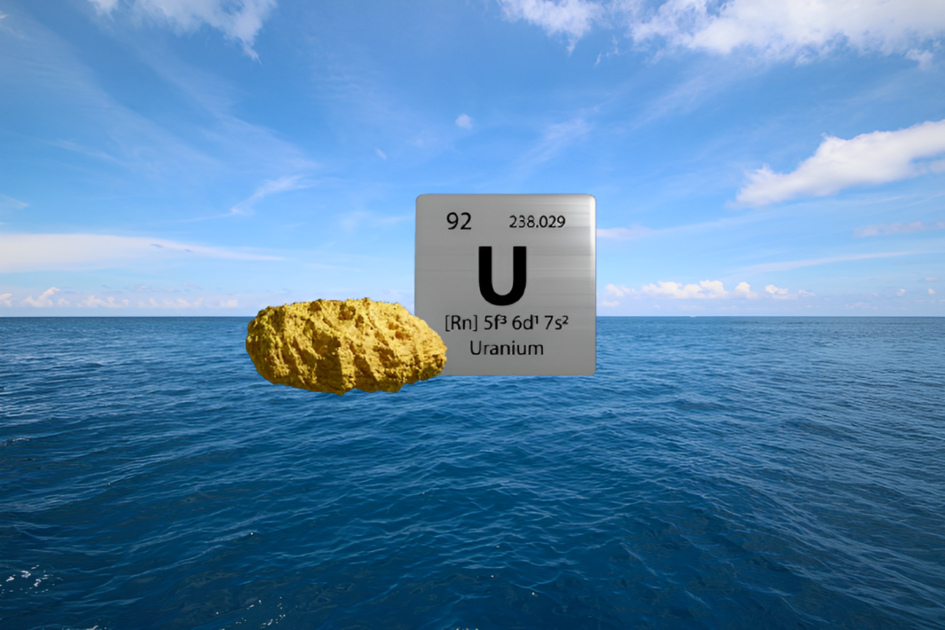In a study published by the American Chemical Society, researchers have developed electrodes for the electrochemical extraction of uranium from seawater with high efficiency. These electrically conductive electrodes are self-standing, free of binding materials and metals, porous, and have an aromatic framework.
Currently, uranium is extracted from rocks, but estimates from the Nuclear Energy Agency indicate that 4.5 billion tons of uranium float in the oceans in the form of dissolved uranyl ions. This reserve is a thousand times larger than what is present on Earth, offering a new opportunity to provide sustainable nuclear fuel supplies. This is especially important as the limited uranium reserves on Earth pose a serious obstacle to the development of a sustainable nuclear energy industry.
Nuclear energy is a clean, low-carbon energy source and an alternative to fossil fuels, ensuring an important guarantee for green development. Uranium is the main fuel for nuclear power reactors.
Nuclear power reactors release the energy stored naturally inside the atom and convert it into heat and electricity through the process of atomic fission. Uranium has become the preferred element in this process as all of its forms are unstable and radioactive, making it easy to undergo fission.
Extracting uranium from seawater is a challenging process as seawater has high ionic strength and complex intertwined ions that hinder uranium extraction. Additionally, seawater contains abundant biological deposits from marine microorganisms and other biological entities, limiting the practical application of uranium extractants in oceans and seas.
The materials used for uranium extraction do not have sufficient surface area to effectively capture ions. The researchers in this study developed electrodes with numerous microscopic angles and crevices that can be used for electrochemical capture of uranium ions from seawater.
To create these electric electrodes, the researchers used a flexible fabric woven from carbon fibers and coated it with two specialized monomers that were then polymerized. They then treated the fabric with hydrochloride hydroxylamine to add amidoxime groups to the polymers. The natural porous structure of the fabric created numerous small pockets to easily trap uranyl ions.
In their experiments, the researchers placed the coated fabric as a cathode in seawater filled with uranium and added a graphite anode, running a periodic current between the electrodes. Over time, light yellow uranium-rich residues accumulated on the cathode fabric.
This study achieved a high uranium extraction capacity within 24 days of operation, reaching 12.6 milligrams of uranium per gram of coated active material used for extraction. The capacity of the coated material was higher than most other tested uranium extraction materials. The developed electrodes can effectively achieve electrochemical uranium extraction through adsorption and electrical stimulation.
This method demonstrated that the electrochemical approach is three times faster than the physical and chemical adsorption method, as well as showing good selectivity against competing ions.
This study provided a deep understanding of the mechanical process and an effective strategy for electrochemical uranium extraction using electric electrodes from seawater.
The extraction of uranium from seawater is a significant breakthrough that could potentially revolutionize the nuclear energy industry by providing a sustainable and abundant source of nuclear fuel. This innovation has the potential to address the challenges posed by limited terrestrial uranium reserves and play a crucial role in advancing green and sustainable development.

